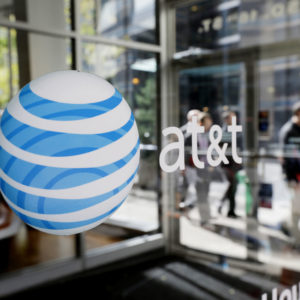The Federal Communications Commission is asking a federal court to reverse a decision that effectively barred the Federal Trade Commission from policing the online privacy practices of any company that provides internet access, leaving communications giants like AT&T and potentially even Google in a privacy gap.
In a friend of the court brief filed with the Ninth Circuit Court of Appeals last week, the FCC asked the full panel of judges to overturn the decision of a previous three-judge panel that found the FTC can’t fine AT&T for misleading customers about the not-so-unlimited nature of its unlimited data plans.
Last August that panel ruled in favor of AT&T after the company argued it can’t be regulated by the FTC because of its recent reclassification as a “common carrier,” a public utility designation the FTC is barred from regulating because it falls within the FCC’s jurisdiction. The FCC reclassified internet access providers as common carriers with its net neutrality rules passed in 2015.
The ruling had the unintended consequence of barring the FTC, the government’s chief online privacy watchdog, from regulating any company that acts as a common carrier in any respect, potentially including Google, which offers access via Google Fiber, and Yahoo, soon be acquired by Verizon (which already owns AOL).
Edge providers — a designation covering web services like Google and Yahoo — can’t be regulated by the FCC, meaning those companies and others like them being increasingly bought up by internet providers would exist within a privacy vacuum, free from oversight by either agency.
In May, the court decided to bring the case back before the court’s full panel of judges at the request of the FTC, and the previous case won’t be cited as precedent in the meantime.
“If the en banc [full] Court were to adopt AT&T’s position that the FTC Act’s common-carrier exception is ‘status-based’ rather than ‘activity-based,’ contrary to the reasoned analysis of the district court below, the fact that AT&T provides traditional common-carrier voice telephone service could potentially immunize the company from any FTC oversight of its noncommon-carrier offerings, even when the FCC lacks authority over those offerings—creating a potentially substantial regulatory gap where neither the FTC nor the FCC has regulatory authority,” the FCC’s argument to the court reads.
“That approach is contrary to a common-sense reading of the relevant statutes and could weaken or eliminate important consumer protections,” the agency added.
AT&T opposed the FCC’s net neutrality rules and its reclassification in 2015 before quickly turning around to use it to the company’s advantage — a tactic the FCC itself took note of it its brief.
“While AT&T may prefer to offer services in a regulatory no man’s land, the law does not dance to AT&T’s whims,” the agency said. “The Court should reject that unsound approach and instead affirm the decision below.”
While the Trump administration is working to reverse the common carrier classification by scaling back the Obama-era net neutrality rules, both FCC Chairman Ajit Pai and acting FTC Chairwoman Maureen Ohlhausen agree the ruling is problematic for privacy and needs to be addressed.
“Today’s action by the Ninth Circuit is a big win for American consumers,” Pai said in May. “Now that the court’s prior decision is no longer effective, it will be easier for the FTC to protect consumers’ online privacy.”
Pai has already led his agency’s repeal of the FCC’s own replacement privacy rules for internet providers, though the agency says it can still police broadband privacy with other authority designed to manage the privacy practices of telephone companies in the meantime.
In January, Ohlhausen gave the example of “a common carrier who decided to sell dietary supplements,” and explained how “the FCC isn’t going to be there policing over dietary supplements.”
“But this could divest the FTC of oversight over them as well,” she said.
The FTC chief, like many of her predecessors, believes Congress should remove the common carrier exemption codified in the agency’s mandate.
“It was put in place at a time when common carriers were pervasively regulated monopolies,” she said. “Obviously our telecommunications space is vastly different than it was when these rules were put in place.”

